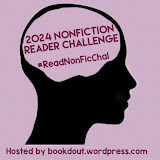Author Lee Cockburn has worked for Police Scotland for sixteen years and today she is joining me as part of the Clink Street Publishing Blogival to tell us how her experiences as a Police Sergeant have informed her writing.
 |
| Lee Cockburn, author |
Author spotlight
The rules with being in the police are that the content of my novels must be fiction, the procedures are real, those that are common knowledge for the public, they can look them up if they want; those that are permitted to be read of course. The characters are all fictional too though, their stunning beauty and near perfection are simply not real, but a very pleasant thought for the reader and the crimes and scenarios are purely fiction too.
Saying that, I have seen many horrible things in the course of my duty, numerous deaths, as police attend all deaths in the city, whether they are the result of a crime or not. Some peaceful, some premature, some not noticed, all of which are unpleasant in their own way. Some deaths are horrible to see and cannot be unseen, their untimely end clearly not chosen. I feel the pain for their families, their sadness, those that loved them, the pain they go through when the fateful message is passed. Premature death of any kind is always a tragedy, young lives taken too soon, their families devastated at the loss, and as a police officer, every single death affects me in some way or other, whether it was expected or not and I have to deal with that, be able to put it in a place where it wont affect me again.
My characters are beyond evil, severely deranged, sadistic serial killers or wired wrong in their desires, sickening to all but their own kind, people that you cannot relate to, because their make up is so damaged, their personalities are not normal and you would have to question yourself if you could relate to them?
I have seen violence and brutality, tragedy, suffering, fear and terror, dominance and control, all of which appear in my novels, although the level of evil and violence portrayed in my books is more often seen in that of real life serial killers from the USA. I don’t know why I have taken things up a level in my writing, probably to make the books more frightening, thought provoking and fear inducing, they are meant to be borderline horror thrillers. Saying all that, Devil’s Demise and Porcelain Flesh of Innocents have true heroes and heroines, good people willing to fight and wont be beaten by evil or control, and other characters that are truly decent genuine folk that stand up for right and wrong. My books portrait good versus evil, and in my opinion, good should always win over evil, even though it sometimes takes a while, karma is real.
Regarding the characters, I can see a little of myself in Taylor, not quite as striking or efficient, but in my early years, a little flirtatious, I made a few mistakes and suffered the consequences, and I have definitely learned through experience.
I never thought in my wildest dreams that I would ever write a book, far less three, but now that I’ve started I just want to write exciting, gritty, frightening books that have a little passion thrown in to give the reader a little respite from the horror, books that make you want to read on, feel a little frightened or warm inside, either way, hopefully you wont be able to put it down.
Blurb for Porcelain: Flesh of Innocents
Detective Sergeant Taylor Nicks is back and in charge of tracking down a sadistic vigilante, with a penchant for torturing paedophiles, in this unsettling crime thriller by a real-life police sergeant.
High-powered businessmen are turning up tortured around the city of Edinburgh with one specific thing in common — a sinister double life involving pedophilia. Leaving his ‘victims’ in a disturbing state, the individual responsible calls the police and lays bare the evidence of their targets’ twisted misdemeanours to discover, along with a special memento of their own troubled past — a chilling calling card. Once again heading the investigation team is Detective Sergeant Taylor Nicks, along with her partner Detective Constable Marcus Black, who are tasked not only with tracking the perpetrator down but also dealing with the unusual scenario of having to arrest the victims for their own barbarous crimes. But with the wounded piling up the predator’s thirst for revenge intensifies and soon Nicks discovers that she is no longer chasing down a sinister attacker but a deadly serial killer.
Vivid, dark and deeply unsettling Porcelain: Flesh of Innocents is the perfect next read for serious crime and police thriller fans.
Author Bio
Lee Cockburn has worked for Police Scotland for 16 years including as a police sergeant in Edinburgh for 7 years and also as a public order officer. Before joining the force, she played for Scotland Women’s rugby team for 15 years, and also swam competitively for 12 years; successfully representing Edinburgh in the youth Olympics in Denmark in 1984.
Lee lives in Edinburgh with her civil partner Emily and their 2 young sons. Her first book Devil’s Demise was published by Clink Street Publishing November 2014. Follow Lee Cockburn on Twitter.

















































